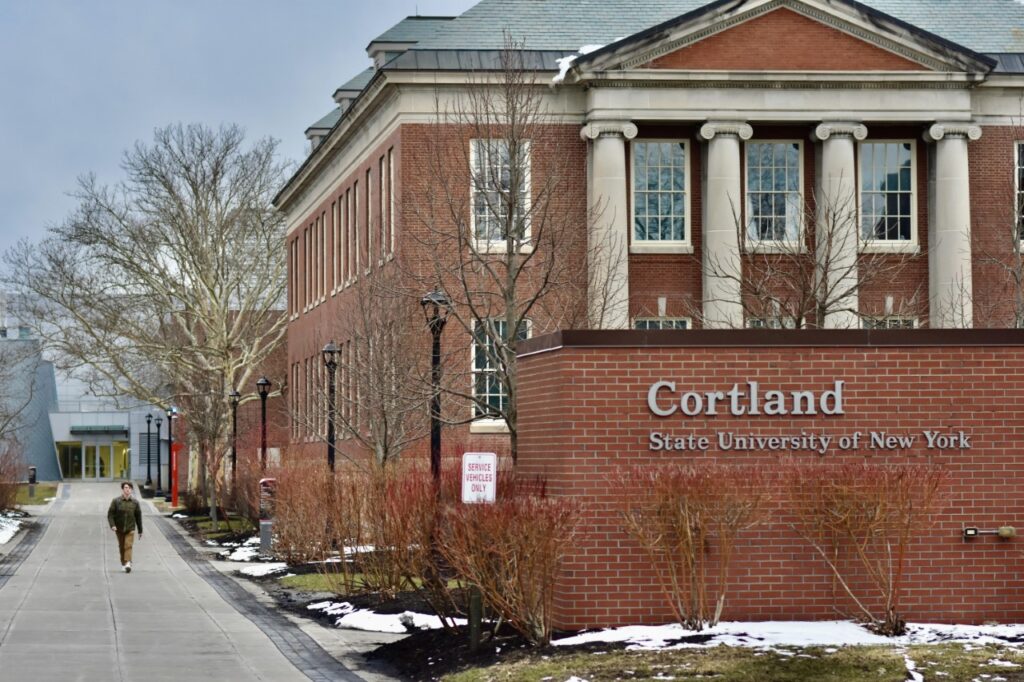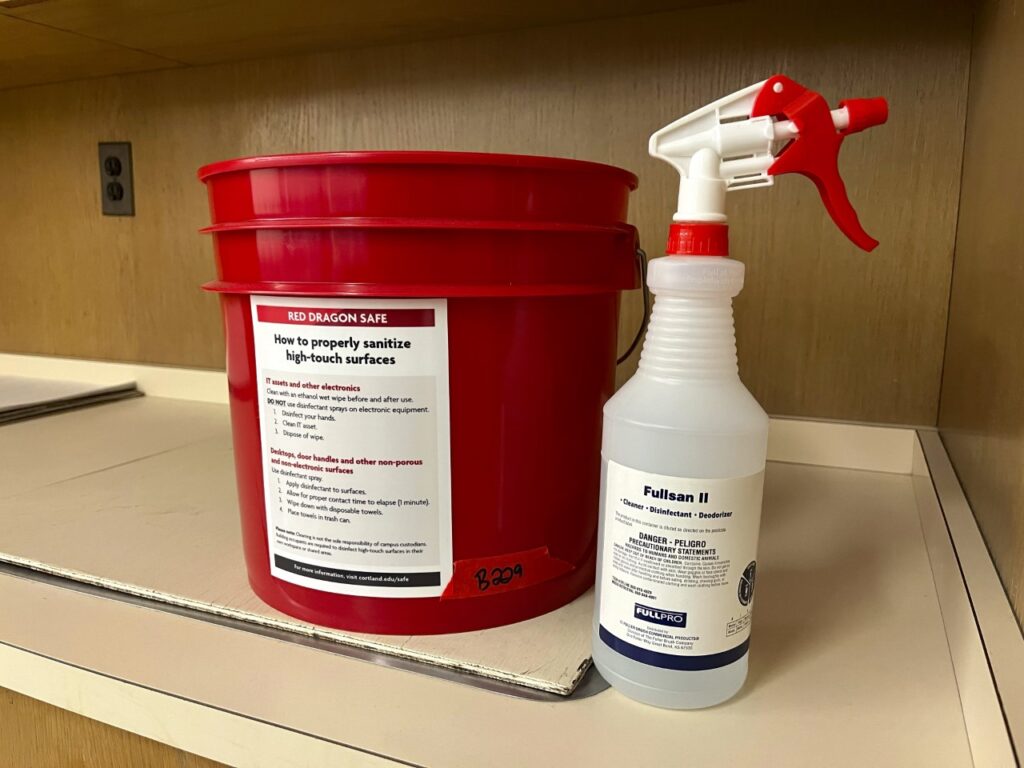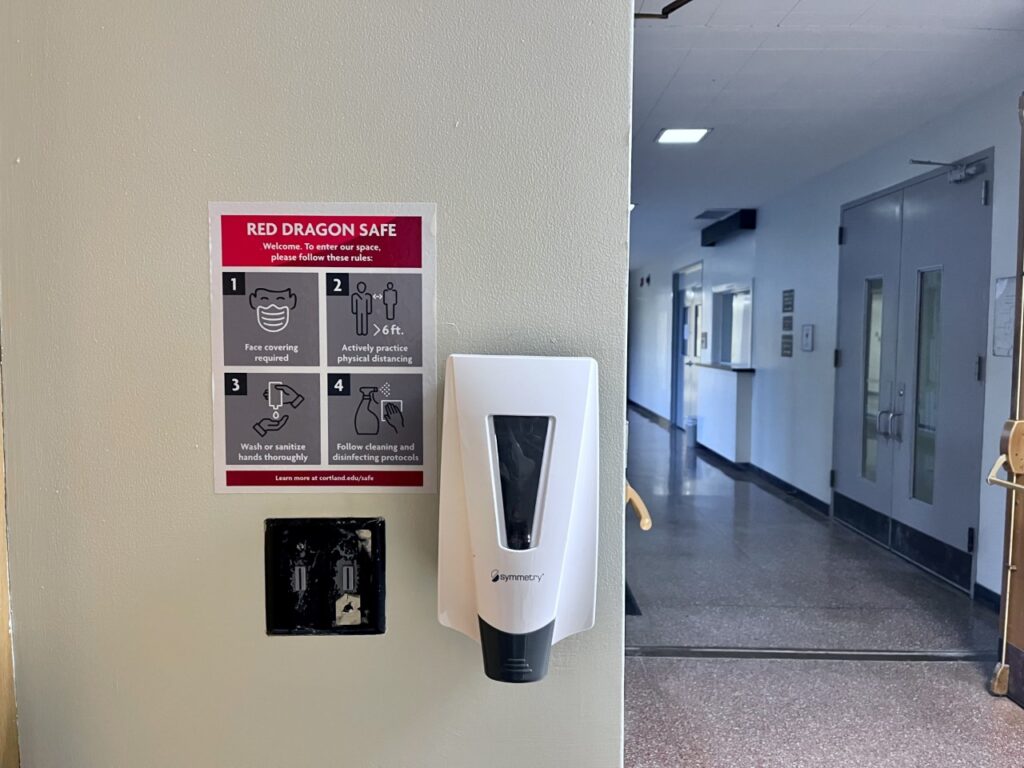This article was written by Joshua Dellett and Reilly Mangano.
Michael Rogers was in his second semester of college at SUNY Cortland when Covid hit. He recalls the news breaking while he was in his General Chemistry I lecture, and being sent back to his dorm early that day. The lecture, alongside the rest of his classes for the day, were canceled.
“Somewhere around 1 o’clock on March 13, the world just stopped spinning,” Rogers said.
When he returned to his dorm hall, the rest of the residents were gathered in the foyer. Some were crying, some were joyfully shouting expletives, but most of them were hugging one another goodbye. Everyone knew something serious was happening, a worst-case scenario of sorts, but no one knew anything more.
The rest of the day Rogers and his roommate packed up their belongings with plans to head home the next morning. What was initially claimed to be an “extended spring break” turned into the suspension of a semester. Classes resumed online, but no one was on campus. No one knew what was coming, nor how long they’d be confined to their homes.

But time marched on, people healed, and the world began to spin again. Three years since the onset of the pandemic – since the fateful extended spring break, the Covid generation is preparing to graduate. Most students graduating from their undergraduate studies this spring were in their first year of college when the pandemic struck; their Covid experience was not just confined to, but deeply intertwined with their college experience.
Now that the Covid generation is getting ready to step into the real world, much is being said regarding the lasting social and personal effects the pandemic has had on students, and whether or not they feel prepared to start their real lives. However, according to students themselves, not much has changed at all, and they’re ready to take on the world head-first.
“Nah, not really,” Rogers said when asked if Covid changed his future plans. “I never considered changing my plans.”
Rogers is an exercise science student with hopes of someday becoming an athletic trainer for a professional sports team. Fortunately, Rogers didn’t need to do any hands-on work for his degree when the lockdowns were in place. During that time, Rogers continued to take his required courses online. When it came time for his experiential, hands-on courses, SUNY Cortland had already returned to in-person classes. When asked if he felt ready to enter the job market after graduation, Rogers said “absolutely.”
Kaitlyn Shott, who was a freshman at SUNY Cortland when Covid paused the world, has a similar story.
“My plans didn’t really change when classes moved online, because criminology isn’t really a hands-on major,” Shott said. “There was nothing to suggest I should change my plans, nothing had changed for me.” Shott will be graduating this May, right on time with the same degree she set after before Covid began. She eagerly awaits the hunt for a career, which she hopes will be as a juvenile probation officer.

Abigail Merkle, a senior at Kutztown University of Pennsylvania says that “For me, nothing changed. I dropped out of my original college two months before Covid, and enrolled at Kutztown in August- which I would’ve done regardless of Covid.”
Merkle, a secondary education major concentrating in science, said that the only noteworthy change was in her science lab classes. “But even still, I got the same education and a good grade. It made no difference to me.”
Merkle’s on track to graduate this May, and has high hopes of being a middle school science teacher near her hometown of Slatington, PA.
Although Covid didn’t affect most students’ plans, it was nonetheless taxing on their mental health. A study published to the National Library of Medicine in Sept. 2020 found that during the pandemic, 71% of American college students experienced increased levels of stress, anxiety, and depressive thoughts. How are they doing now?
“It was a scary time,” says Kelley LaRosa, a junior who arrived at SUNY Cortland in Fall 2020. LaRosa said that at the peak of the Covid lockdowns, her mental health was nothing short of “bad.” Like Shott, LaRosa also says that her mental afflictions went away when the lockdowns did.
“These days, I’m thriving. It’s like nothing ever happened,” said LaRosa.
Merkle says that while her mental health wasn’t good prior to Covid, the pandemic did slightly worsen it. She attributes this shift to being confined to her apartment for the majority of the time, as there was “nothing going on in the outside world.” She too says that once things went back to normal, her mental health began to improve.

So, has Covid truly been as detrimental to students as it’s been made out to be? Students argue no. For them, Covid’s far in the rear-view, and they’re about to march into the job market with high hopes, and great optimism.